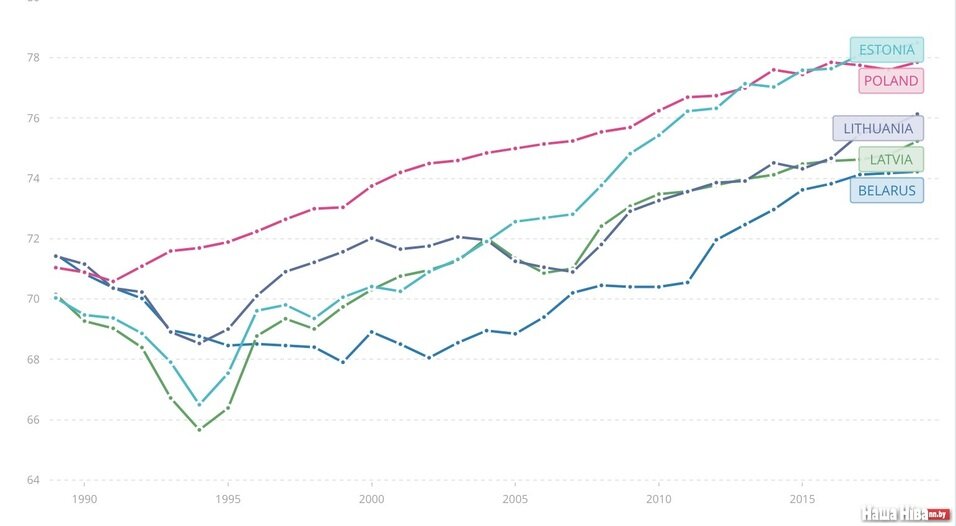Belarus Lags behind All EU Countries in Life Expectancy
7- 17.05.2021, 15:04
- 7,646

And, in the 90s, it was ahead of some of them.
At the time of the collapse of the USSR, Belarus was significantly ahead of Estonia, Romania, and Latvia in terms of life expectancy and was on a par with Poland, Lithuania, and Bulgaria. Now it lags behind all of them, writes the site nn.by.
After the collapse of the USSR and the social bloc, Poland, the Baltic States, and Eastern Europe took a course towards integration into the European Union. Thirty years have passed. The results of the choice of political and economic course can be assessed not only by economic indicators, the size of wages, but also by such a conservative indicator as life expectancy.
As in 1989-1991, Belarus is ahead of Russia, Ukraine, and Moldova in life expectancy, but we are significantly behind the countries of the European Union.
By the time of the collapse of the USSR, Belarus was significantly ahead of Estonia, Romania, and Latvia in terms of life expectancy by a year or two, and was on a par with Poland, Lithuania,, and Bulgaria. Now it lags behind all of them, moreover, it's behind Poland and Estonia by 3-5 years.
In 1989, when the collapse of the Soviet system began, in Belarus, the average life expectancy was 71.5 years, in Russia - 69.2 years, in Poland - 71 years, in Lithuania - 71.4 years, in Latvia - 70.2 years. , in Estonia - 70 years, in Romania - 69.5 years.
In 2019, according to the World Bank, life expectancy in Belarus was 74.2 years, in Russia - 73.1 years, in Poland - 77.9 years, in Lithuania - 76.1 years, in Latvia - 75.2 years, in Estonia - 78.5 years, in Romania - 75.5 years.

The moment when our neighbors are separated from us is clearly visible when comparing the graphs. It happened in the second half of the 1990s - early 2000s. Estonia's success is particularly impressive.

Life expectancy in Western European countries is still higher than in Eastern Europe, but this difference is narrowing.
In 1989, the average life expectancy in Portugal, the poorest in the EU, was 74.3 years; now it is 80.7 years. In France, Italy, Spain, Sweden, and Malta, it is now 83 years old, in Germany - 82 years. All these data are taken from the statistics of the World Bank.
Life expectancy depends on both income levels and people's habits, as well as the quality of health care.









